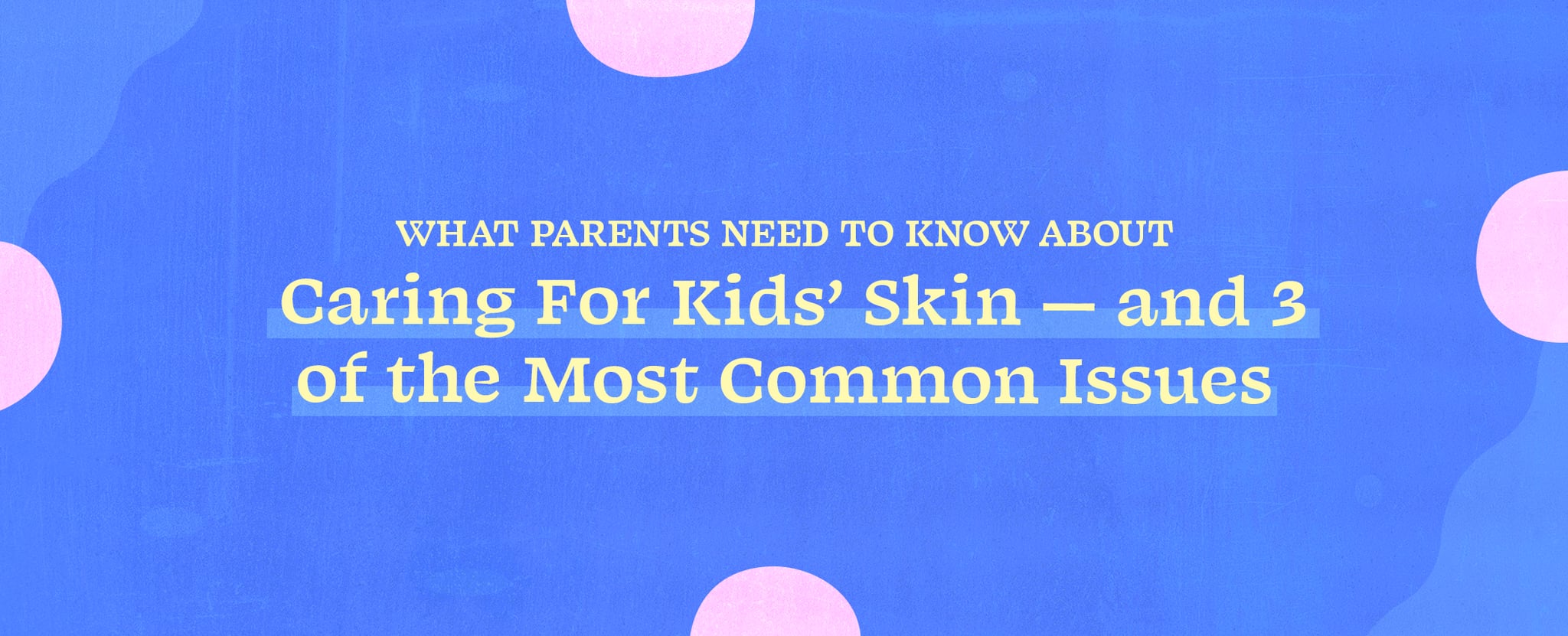
Caring For Children's Skin With Eczema, Hives, or Warts
What Parents Need to Know About Caring For Kids' Skin — and 3 of the Most Common Issues

Skin care isn't just for grown-ups. While children don't need a medicine cabinet full of fancy skin-care products, parents do need to be aware of their kids' skin-health needs — and signs that they might need to enlist a medical professional's help.
Nora Fahden, MD, of Bayside Medical Group in San Ramon, CA, with Stanford Children's Health, says that it's easy to overlook the skin, especially if you don't notice anything out of the ordinary. "Our skin just kind of exists, but it's a really important organ in the body," she says.
Still, there are a few healthy skin-care habits that Dr. Fahden recommends to all parents. First and foremost, make sure your kids use sunscreen with SPF 30 or higher every single day — rain or shine. No matter the weather, kids' skin should be protected from UV radiation.
Dr. Fahden also encourages every family to get in the habit of bath time every night. "A nightly bath clears the allergens off the skin, clears the germs off the skin, and helps moisture soak back into the skin," and promotes overall skin health, she explains. Plus, a warm bath at night can actually help ease the transition into bedtime. "[Baths] will drop your core body temperature a few degrees once you get out, and that's a trigger for sleep," Dr. Fahden says.
The products you use at bath time are equally important, Dr. Fahden says. She recommends choosing a plain, simple soap without any foaming or bubbling action. "The more that the soap bubbles and lathers and foams, the more it's going to dry out the child's skin," she says. "You really want a soap that's a little bit more boring and has a milky texture that doesn't really foam up that much."
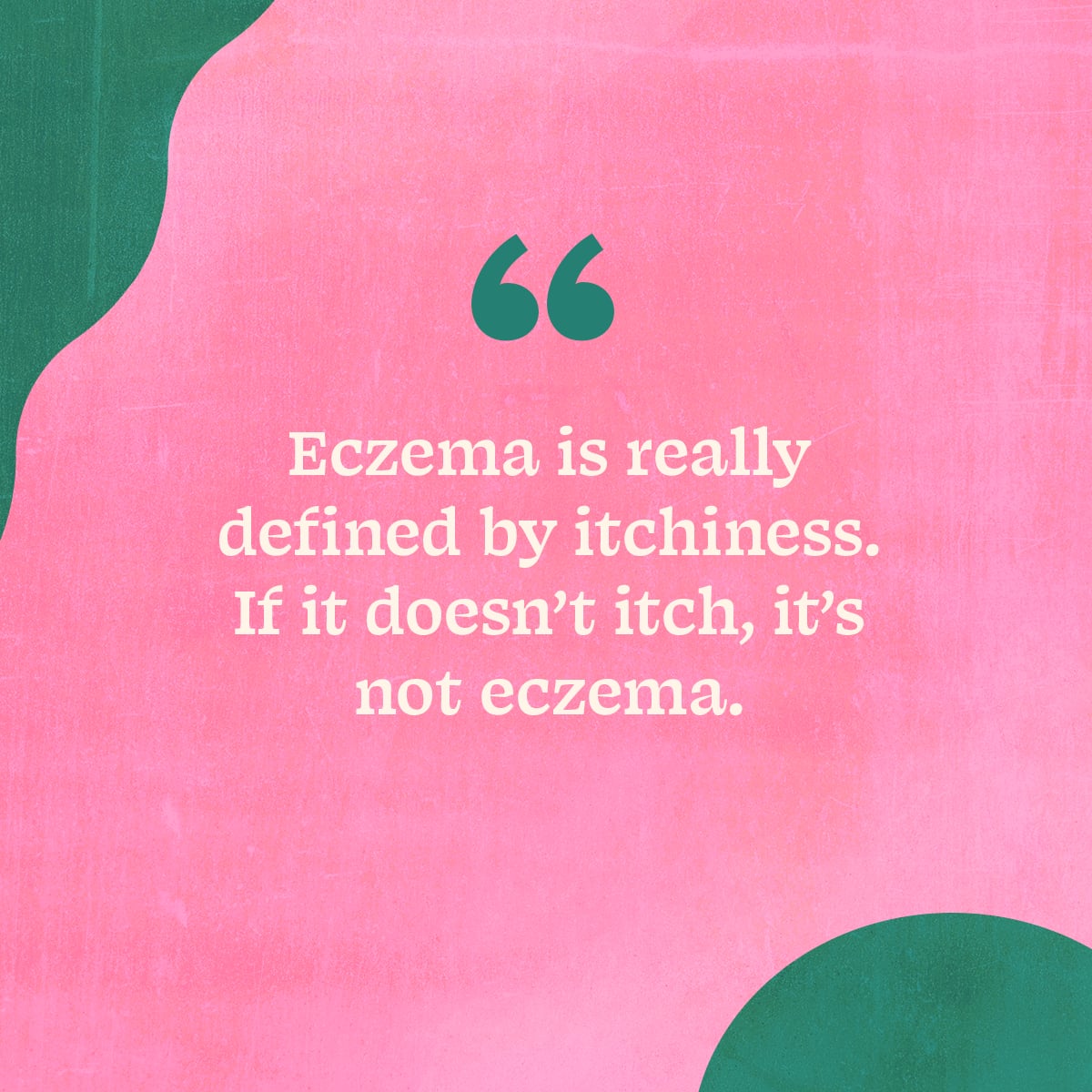
As tempting as kid-friendly scents might be (cotton candy! bubblegum! vanilla cupcake!), Dr. Fahden recommends avoiding them as well. Scent-producing chemicals can irritate sensitive skin, she explains: "If your child has sensitive skin, you may think you can buy something that says 'all-natural' or 'unscented,' but what you really want to look for is 'fragrance-free,'" since unscented products can still include scent-producing chemicals as long as they're masked. Similarly, she recommends parents opt for creams or ointments rather than lotions (which are often water-based) or gels (which are often alcohol-based) for the most gentle yet effective moisturizing.
Once your family gets into a kid-friendly skin-care routine, Dr. Fahden encourages parents to keep an eye on their child's skin. If you notice something unusual — like a rash, bug bite, or redness — snap a photo to show to your pediatrician. Here are three common skin concerns Dr. Fahden sees in her patients — and the symptoms parents should watch for.
Eczema
"More than one in 10 kids will be affected by eczema," according to the American Academy of Pediatrics, Dr. Fahden explains. Also called atopic dermatitis, eczema can be fleeting: some children experience infantile eczema only in their first year of life, while others will have eczema through early school age before growing out of it. Eczema is a genetic condition, so "if a first-degree relative has eczema, asthma, or allergies, it's more likely that the child or the sibling will have one of those three," Dr. Fahden says.
The telltale sign of eczema is dry, itchy skin. "Eczema is really defined by itchiness. If it doesn't itch, it's not eczema," Dr. Fahden says. Because eczema is a chronic, inflammatory condition, the skin is actually different at the cellular level: it's prone to irritation and tends to flare up then go away. Eczema also often appears in patches on different parts of the body.
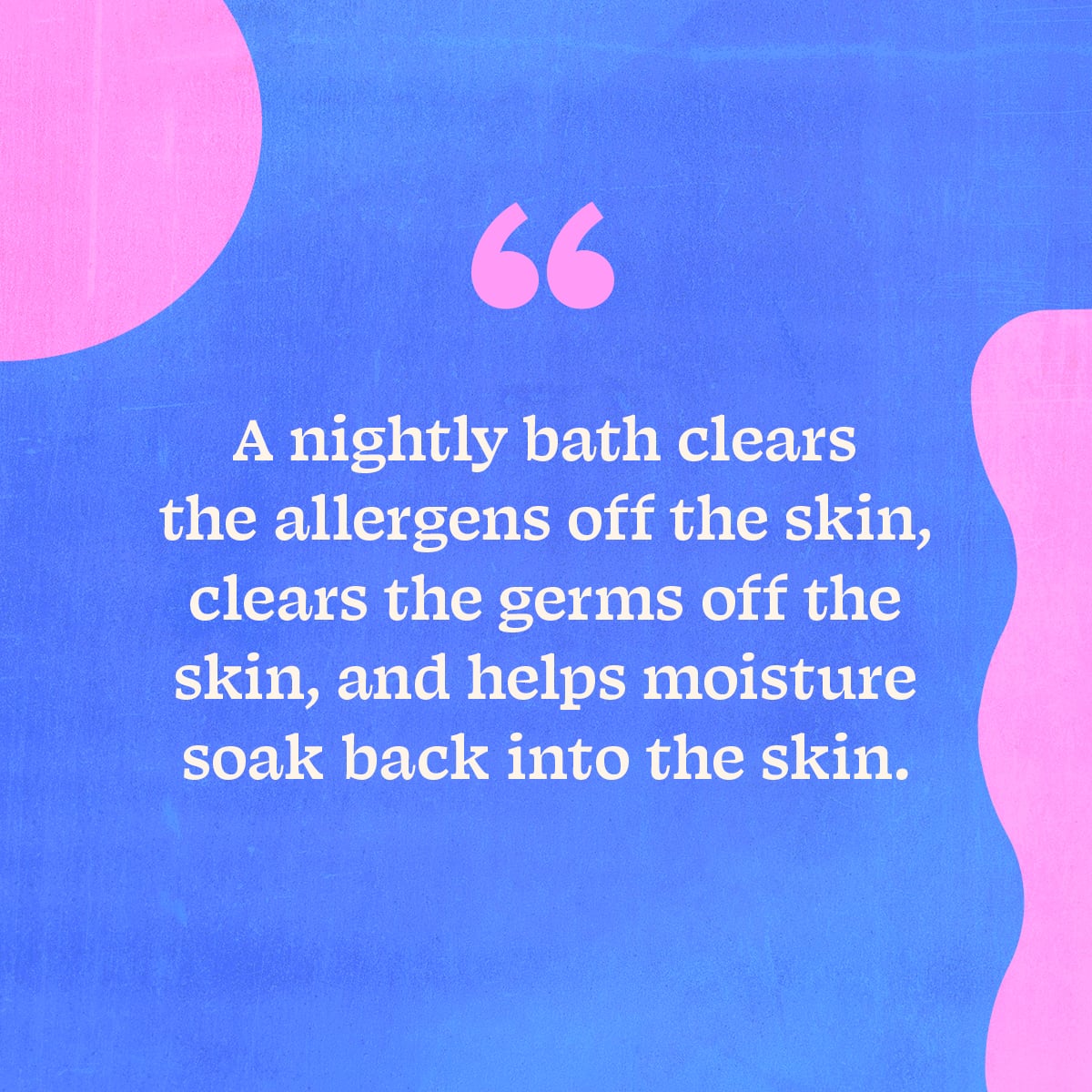
Parents of children with eczema will often try to discover if there's one thing that causes these flares, Dr. Fahden says, but it can be nearly impossible to reverse engineer the cause. Food allergies are a common suspect, since they're more common in children with moderate to severe eczema, but Dr. Fahden says eliminating foods from a child's diet can actually be counterproductive. "So many research studies over the years show that this really doesn't stop the flares from happening for most kids," she says. "Eliminating things from the diet can reduce calories [and] nutrients they need to grow, so we really don't recommend routinely or blindly trying to just eliminate things from the diet." Instead, she recommends speaking to your pediatrician or allergist if you have particular concerns about your child's diet.
That's not to say there's nothing parents can do to minimize the chances that their child will have an eczema flare, though. Dr. Fahden says sticking to a regular daily bathing routine is particularly important for children with eczema. A warm bath at night helps cleanse the skin of any allergens. Just keep the water lukewarm, as steaming-hot temperatures can dry out the skin and trigger a flare. Always follow the bath with a plain cream or ointment like petroleum jelly to moisturize their skin without irritating it.
If your child is still struggling with eczema flares, talk to your pediatrician about medication. Doctors can prescribe anti-inflammatory creams or ointments as well as topical steroids for eczema. Before your appointment, take photos of your child's eczema to show the doctor: they'll want to confirm that it's eczema rather than other skin conditions like contact dermatitis, a yeast infection, or poison oak.
Hives
Though hives are also an itchy rash, Dr. Fahden says they have a distinct appearance compared to eczema. Hives — which are also known as urticaria — are caused by a chemical in the body called histamine that is released in response to an allergy or other irritant. "Talking about hives is tricky, because they can either be part of something that's so serious and deadly — an anaphylactic reaction, for example — or in most cases, [hives are] totally harmless and benign," Dr. Fahden explains. If you notice your child has raised, itchy hives, check for other symptoms like a swollen face, trouble breathing, and vomiting — those could be signs of a serious allergic reaction, and you need to call 911 immediately.
On the other hand, "if your child has hives but they're reading a book and perfectly happy, maybe a little bit itchy, then you really don't need to worry at all. You can just call your pediatrician," Dr. Fahden says. Hives can be caused by a host of different things, including changes in temperature, exposure to irritants like plants, and even some viruses. While you wait to speak to your child's pediatrician, you can give your child antihistamine medications like diphenhydramine or cetirizine and apply a cool compress to the hives to reduce the itching.
Occasionally, children develop what's known as chronic urticaria — hives that keep coming back. Like with eczema, parents will often try to pinpoint a food or environmental allergen that's the trigger, but Dr. Fahden says about half the time, they never find the culprit. Most of the time, chronic urticaria clears up within a year on its own, Dr. Fahden says.
Warts
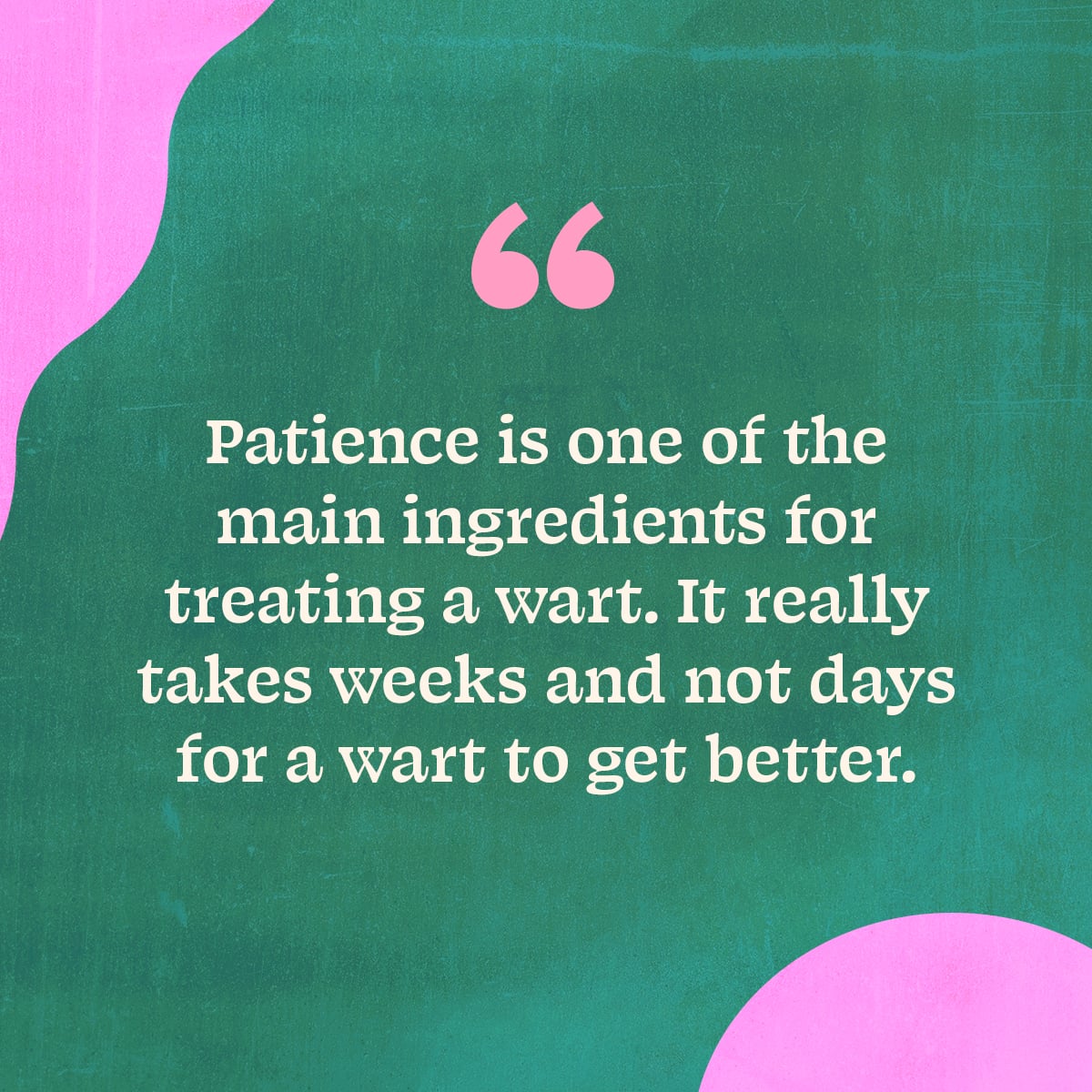
Dr. Fahden says she often sees warts with her patients as well. "Warts are cosmetically upsetting, but they are fairly harmless," she explains. Because warts are caused by a virus on the skin, they can be spread to other parts of the body or other family members. Dr. Fahden says the first thing parents should do if they notice a wart on their child is cover it with a bandage to prevent the virus from spreading on contact. Make sure the child has their own washcloth, towel, and nail clippers, as well.
The most common treatment for warts is a combination of an over-the-counter product containing salicylic acid and time. "Patience is one of the main ingredients for treating a wart. It really takes weeks and not days for a wart to get better," Dr. Fahden says. If your child bites their nails, this might also be a good time to encourage them to break the habit: nail biting creates microtears in the skin, which act as entry points for the virus. Talk to your pediatrician for advice on stopping nail biting or if you have any other concerns about your child's warts.
Any time you notice something unusual on your child's skin, Dr. Fahden says the best thing you can do is take photos of it and call your pediatrician. "There's just no such thing as a bad question," she says. "Parents really shouldn't hesitate to take some pictures and send them to us so that we can find out what's going on."
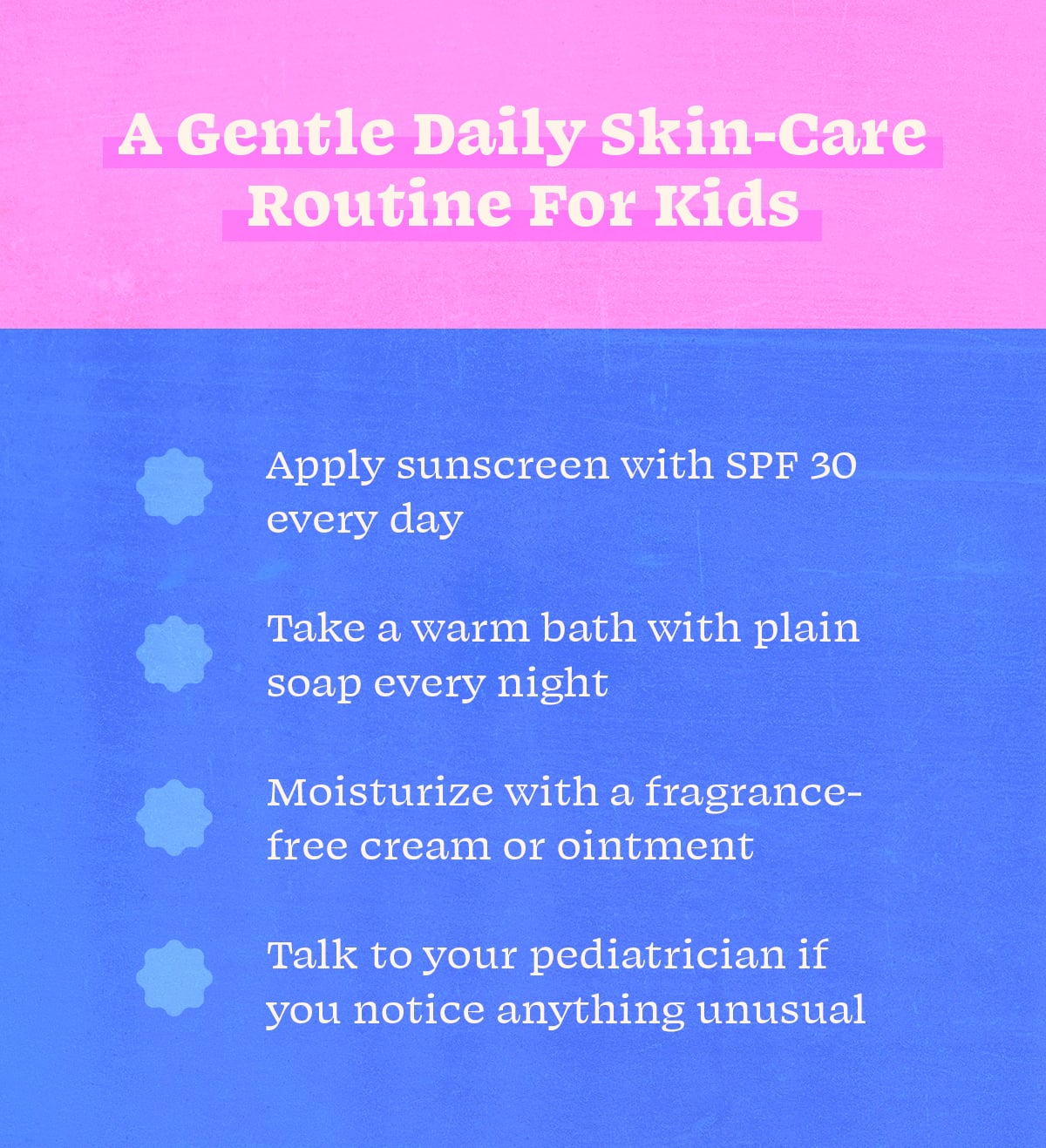
Design: Mia Coleman